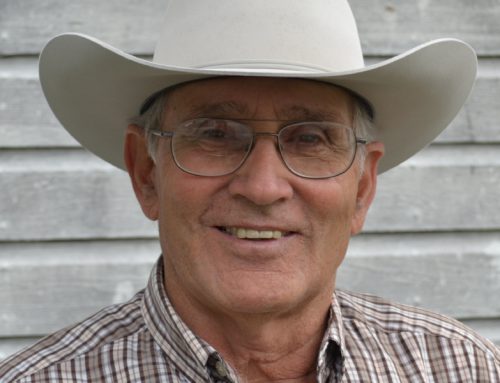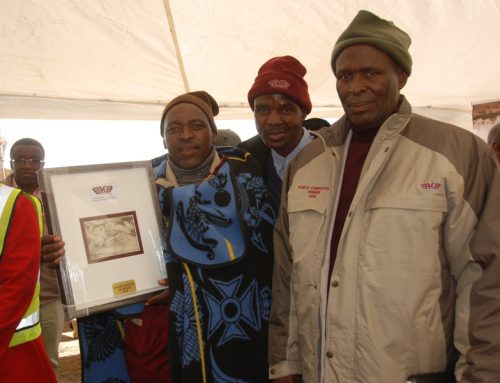The Nguni cattle breed is facing a crisis in which the major feedlots in South Africa are either not accepting Nguni weaners or paying several rand less for them.
Why is this happening and what is being done about it?
In this feature we speak to Marli Stegmann – the President of the Nguni Cattle Breeders Society (NCBS); Jannie Botha – the General Manager of Karan Beef Feedlot, the largest feedlot in the country with 35% market share; and the founder and owner of Douglas Beef Feedlot, Gys Jooste, who runs a feedlot specifically for Nguni weaners.
In early September the council of Nguni Cattle Breeders Society (NCBS) sent an urgent letter to the Minister of Agriculture, strongly objecting to “the discrimination of the feedlots against the South African indigenous breeds of cattle”.
The letter reads:
During recent times weaner calves were imported from Namibia while local cattle breeds were discriminated against by the feedlots, penalties for indigenous breeds ranged from R2.00 to R5.00 per kg. This is posing a serious threat to the sustainability of farming with- and the preservation of indigenous cattle breeds. Farmers from marginal areas where only adapted indigenous breeds can be utilized are severely discriminated against. In the light of changing climatic conditions and unknown future challenges as well as the role of adapted breeds to confront possible future scenarios, the preservation of indigenous genetic material should be considered as a strategic advantage beyond any form of compromise.
In the same letter the NCBS supports the RPO’s objection to the suspension of the Revised Import Regulations:
The scaling down of control mechanisms and standards with complete disregard for the safety and status of the national herd in favour of the feedlots, need to be seriously questioned.
The President of the NCBS, Marli Stegmann, a registered Nguni breeder in the Bandelierkop area near Louis Trichardt in Limpopo, says these issues are adding to the “extremely difficult challenges that beef farmers have faced during the past year, including rising production costs, plunging red meat prices and, in some areas, severe drought.”
She says that while she acknowledges that one of the most important qualities of a farmer is to be an adaptable businessperson, she is of the opinion that the major feedlots, which are price-cutting on Nguni weaners, are exploiting the Nguni cattle farmers.
“When we ask the major feedlots, such as Karan, why their agents suddenly announce price drops or suddenly announce that they are not accepting Nguni weaners from certain provinces, but then as suddenly start accepting them again when it suits them, we get a different answer every time,” she says.
While beef farmers acknowledge that the feedlots are private companies and that they are free to dictate their own terms, they feel that their relationship with cattle farmers is highly compromised by one-sided behavior.
The major feedlots wield an enormous amount of power in South Africa and it does not breed goodwill or trust when they fail to let farmers know in advance why they are taking certain decisions.
“I’m of the opinion that the feedlots have created a ‘perception’ that the Nguni weaner is not good for the feedlot and they are therefore exploiting our breeders by paying less per kg and making an extra R200-400 per animal,” Marli continues. “Nguni weaners can be successfully raised in a feedlot if handled correctly. The feedlot in Douglas, which is happily taking all Nguni weaners, Nguni crosses and all other breeds, is proof of this.”
The Nguni Kalahari Club in collaboration with the co-op GWK has partnered with a feedlot in Douglas in the Northern Cape to feed Nguni weaners in a ‘hotel system’.
“Nguni farmers send their weaners there, pay for the feed on a monthly basis for the 90-120 days that their weaners are in the feedlot and share in the profit at the end. The NCBS is encouraging their members to establish more of these models in other areas of the country,” she says.
“In any industry, it is extremely dangerous to rely on only one client or option for marketing your product,” she says. “We need to focus on the Nguni’s excellent characteristics and qualities and we are encouraging and supporting Nguni cattle breeders and farmers to either establish alternative structures to market our product, or to work within the existing feedlot structures and produce cross-bred weaners, which they say they have no problem accepting.”
An option, she suggests, is for Nguni cattle farmers to put European or beef bulls onto their Nguni cows.
“Despite the feedlots, the Nguni cow is any beef producers’ most profitable option for optimal kg/hectare. With Ngunis you can run more breeding cows per hectare because of their lower weight (the average is 367kg) that can produce calves of 230kg when crossed with a European breed. That is excellent cow efficiency,” she explains.
“We are using Simmentaler bulls with great success on our pure bred Nguni cows. The Nguni cow has the ability to inhibit the fetus growth and produce a small calve at birth. We’ve had no calving problems and these calves are very good performers in a feedlot,” says Marli who has 400 breeding Nguni cows, half of which are for stud breeding and half for crossbreeding.
“The Nguni is also a perfect breed for marketing straight from the veld in ox production systems. This meat can be marketed as free range with healthier fat marbling, and it is free of hormones and antibiotics with healthier fat marbling,” says Marli, adding that the NCBS will be making a presentation at the beef classification workshop on November 9 where they will argue that veld-raised AB and B cattle should be getting a higher slaughter price.
She does not believe that crossbreeding with Nguni females for the commercial market will destroy the breed. As of the 1 July 2014 the NCBS has 43 780 registered females and 12 555 males, with committed breeders who will keep the purebred Nguni line strong. Others disagree, saying that the Nguni weaner feedlot crisis is already adversely affecting the number of buyers, as commercial Nguni farmers who cannot afford the feedlot knock, are buying into other breeds.
The last alternative that Marli suggests, is for Nguni farmers to background and feedlot their own animals:
“We do this on our farm when the price of doing it ourselves is better than the price of sending them to the feedlot. Various feedlot mixes are widely available and all the feed agents can advise on this,” she says.
“We have successfully done this with 50 – 100 animals at a time, without the use of antibiotics and growth hormones. They gain 1.3kg to 1.5kgs per day in our feedlot, and at between 380-420kgs we then send them straight to the abattoir as A-grades,” she says.
“We are also fortunate in our area that our local feedlots have not discriminated against Nguni weaners. We are also in the process of finalising research on Nguni weaners with Vencor, the biggest feedlot north of Polokwane, to demonstrate how Nguni weaners perform in feedlots. We will release these results as soon as we have them.”
Contact Marli Stegmann on:
Cell: 083 441 0930
marli@mafred.co.za
Jannie Botha, GM Karan Beef Feedlot
“We introduced a R2 deduction on Nguni weaners four years ago because they do not perform as well as other breeds in our feedlot. We feed a hot ration, full of energy, as we get the best results from this in our feedlot.
Unfortunately we cannot accommodate different rations for different breeds. Bear in mind that the Nguni breed was not intended for intensive production systems like feedlots, but rather for extensive grazing where their hardiness, fertility and resistance to ticks and disease is prominent.
“Our weaners grow at 1.5-1.8kgs per day in our feedlot; the variation is between winter and summer growths. We slaughter at 430-450kg live weight and are not able to get Nguni s to that weight in our production system.
“We do take Nguni crosses at the full weaner price as long as they meet with our criteria: they must be weaners of 6- 8 months old, they must be dehorned, males must be castrated and they must have good conformation – good depth, good muscle development and good hindquarters. We expect the same from all breeds and we prefer male weaners as they are more productive than females. We have 70% males and 30% females in our feedlot.
“We stopped taking Nguni weaners from the Eastern Cape because they were sending us too many animals with horns and uncastrated males. The conformation was also not always as we expect it to be. We are now accepting Nguni weaner males again, which perform better than the females in our feedlots, as long as they meet with our criteria.
We are paying R2 less for Nguni male weaners at the moment.
“To accommodate the Eastern Cape beef farmers, we will be opening a holding station in Adendorp, Graaff Reinett before the end of this year, where we will be accepting all breeds, including Nguni crosses and Nguni weaner males.
“Farmers will be able to bring any number of weaners to Adendorp and they will be paid within 24 hours of weighing and delivery of the cattle.
“We will precondition the animals in Adendorp for 15-18 days before sending them to our Heidelberg feedlot, which currently accommodates 135 000 cattle at a time on 800ha, or 400 000 annually. This is 35% of the total beef market in South Africa.
“At Karan we believe the suspension the Revised Import Regulations concerning neighboring countries, is a good thing because South Africa is still a net importer of beef as we cannot produce enough beef in South Africa for all the different market requirements.
“At Karan we also try to promote good relationships with all beef farmers in South Africa, and we encourage farmers to phone me personally if they have any queries whatsoever.”
Contact Jannie Botha: 082 777 3705
Email: jannieb@karanbeef.com




